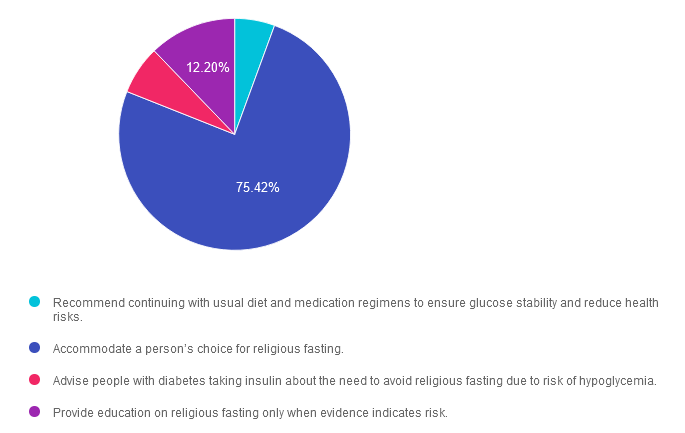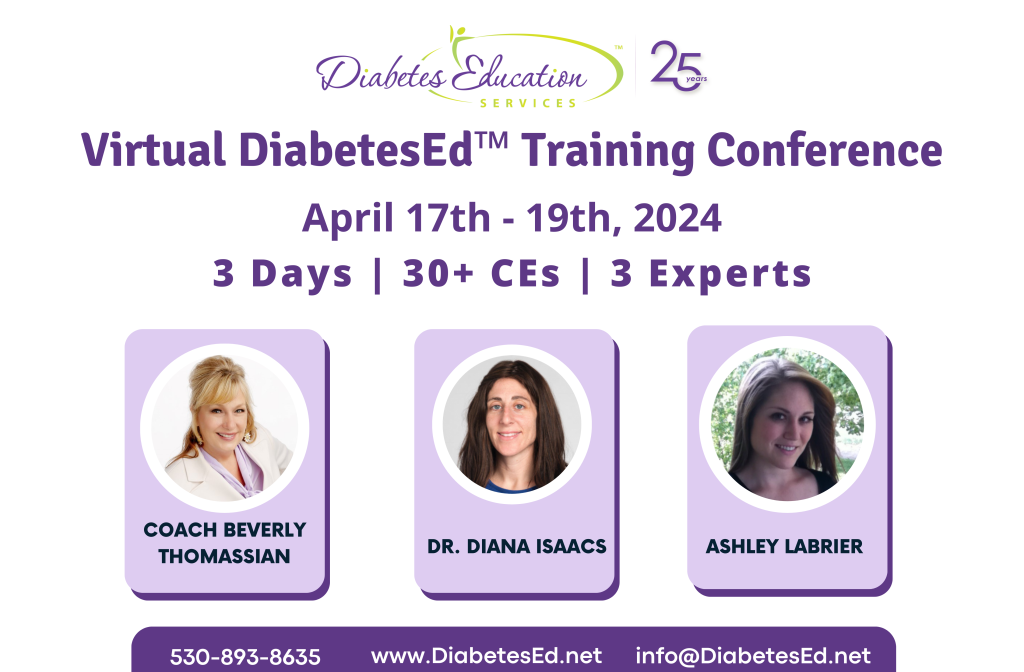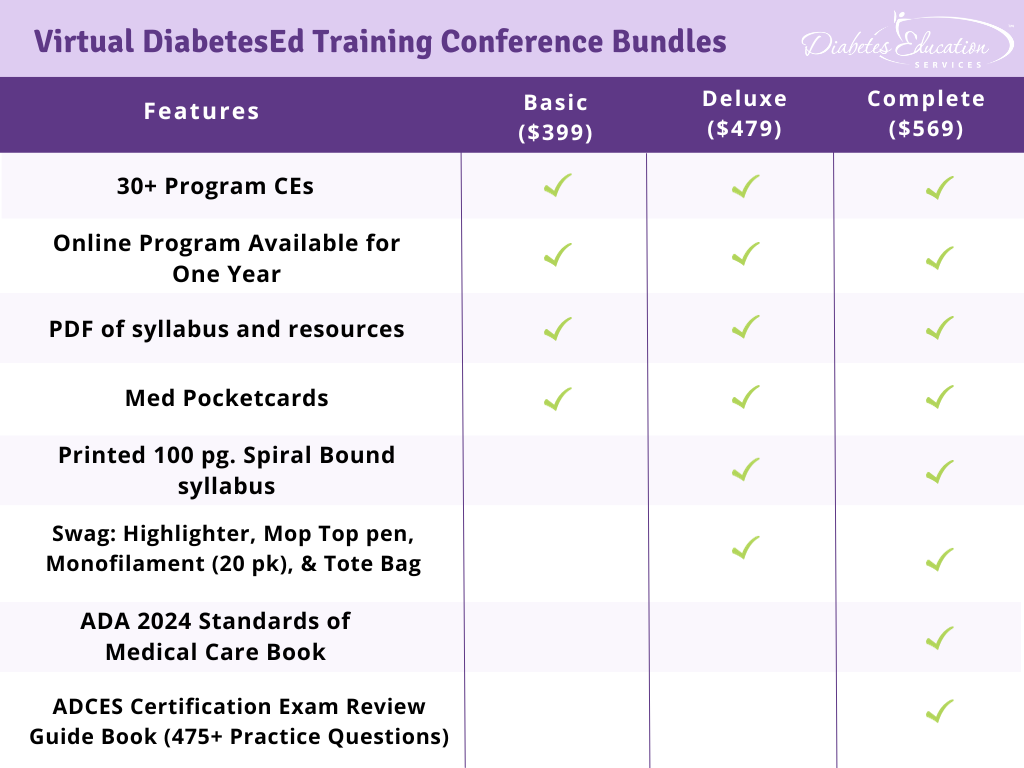
For last week’s practice question, we quizzed participants on what is the best approach for religious fasting. 75% of respondents chose the best answer. We want to clarify and share this important information, so you can pass it on to people living with diabetes and your colleagues, plus prepare for exam success!
Before we start though, if you don’t want any spoilers and haven’t tried the question yet, you can answer it below: Answer Question
Question: The 2024 Standards of Care reported individuals who fast have an increased risk for hypoglycemia, dehydration, hyperglycemia, and ketoacidosis.
Which of the following is an accurate health care statement regarding recommendations for religious fasting?
Answer Choices:
- Recommend continuing with usual diet and medication regimens to ensure glucose stability and reduce health risks.
- Accommodate a person’s choice for religious fasting.
- Advise people with diabetes taking insulin about the need to avoid religious fasting due to risk of hypoglycemia.
- Provide education on religious fasting only when evidence indicates risk.

Getting to the Best Answer
If you are thinking about taking the certification exam, this practice test question will set you up for success. Test writers anticipate possible answers based on the details in the question. They will wave those “juicy answers” right under your nose. Your job is to weed through the particulars, pluck out the most important elements and choose the BEST answer.
Answer 1 is incorrect. 5.59% chose this answer. “Recommend continuing with usual diet and medication regimens to ensure glucose stability and reduce health risks.” Although religious fasting does change a person’s usual diet, sleep, and potentially medication regimen, evidence has shown that with education, most people with diabetes can safely complete a religious fast.
Answer 2 is correct. 75.42% of you chose this answer. “Accommodate a person’s choice for religious fasting.” Based on the 2024 Standards of Care, healthcare providers should accommodate a person’s choice for religious fasting.
Answer 3 is incorrect. About 6.78% of respondents chose this. “Advise people with diabetes taking insulin about the need to avoid religious fasting due to risk of hypoglycemia.” Although risk assessment is essential to review with each person with diabetes, the use of insulin is not a singular determinant of risk. Often, dose adjustments can reduce risk. The article “Diabetes and Ramadan: Practical Guidelines 2021”, referenced in the 2024 Standards of Care, includes a detailed description of how to stratify individual risk.
Finally, Answer 4 is incorrect. 12.20% chose this answer. “Provide education on religious fasting only when evidence indicates risk.” Healthcare providers should inquire about religious fasting and provide proactive education on monitoring glucose and how to modify medications, meal choices pre/post fast, fluid consumption, and activity planning.
We hope you appreciate this week’s rationale! Thank you so much for taking the time to answer our Question of the Week and participate in this fun learning activity!
Virtual DiabetesEd Training Conference – Join us Live on April 17th – 19th 2024 at 11:30 AM PST

Join Coach Beverly and Team for two and a half days of knowledge-sharing, fun, and “aha” moments for our Virtual DiabetesEd Training Conference April 17th – 19th, 2024.
Attendees will leave this conference with new tools and a refreshed understanding of the latest advances in person-centered diabetes care. Our team highlights the ADA Standards of Care, medications, behavior change, technology, medical nutrition therapy, and more!
Our instructors co-teach the content to keep things fresh and lively.
Friend Discount: 3 or more only $449 per person. Email us at [email protected] with the name and email of each registrant to get the discount!
Program Details
- Dates: April 17-19th, 2024
- Registration Fee: $399-$569 (see more about reg. options below)
- Friend Discount: For 3 or more people, each person saves $50 off their registration. Email us at [email protected] with the name and email of each registrant to get the discount!
- CEs: 30+ CEs | 18 units for Virtual Conference plus 10+ Bonus CEs. CEs can be applied toward CDCES’s initial application or renewal.
- Speakers: View Conference Faculty
Registration Options

Sign up for Diabetes Blog Bytes – we post one daily Blog Byte from Monday to Friday. And of course, Tuesday is our Question of the Week. It’s Informative and FREE! Sign up below!
Accreditation: Diabetes Education Services is an approved provider by the California Board of Registered Nursing, Provider 12640, and our CPEU courses have received Prior Approval* from the Commission of Dietetic Registration (CDR), Provider DI002. Since our CPEU courses received Prior approval* from the CDR, these CPEU courses satisfy the CE requirements for the CDCES /BC-ADM regardless of your profession!
The use of DES products does not guarantee the successful passage of the certification exam. CBDCE and ADCES do not endorse any preparatory or review materials for the CDCES or BC-ADM exams, except for those published by CBDCE & ADCES.









